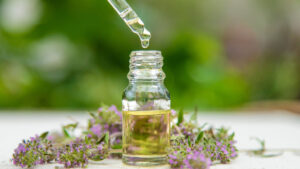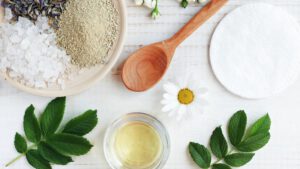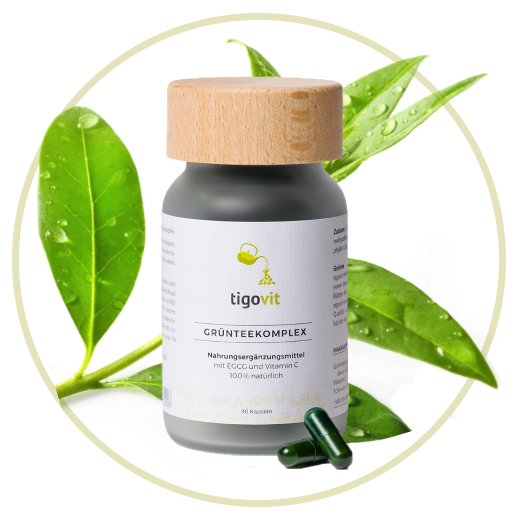
Während sich die Menschen immer mehr der Bedeutung eines gesünderen Lebensstils bewusst werden, steht dort die Ernährung im Mittelpunkt. Doch viele wissen immer noch nicht, wie wichtig auch die Qualität der Produkte sind, die wir auf unsere Haut auftragen.
Die Haut ist unser größtes Organ und sie „erinnert“ sich daran, wie wir im Laufe der Zeit mit ihr umgegangen sind. Weniger bekannt ist, dass dieses größte Organ bis zu 60-70 % dessen aufnimmt, was wir ihm zuführen. Studien haben gezeigt, dass das meiste, was wir auf die Haut auftragen, tatsächlich in unseren Blutkreislauf kommt. Diese Chemikalien, deren Namen wir nicht einmal aussprechen können, erscheinen in unserem Blut und ihre Giftstoffe fließen durch unseren Körper.
Eine weitere Studie zeigte, dass die meisten Kinder und Erwachsenen fast 100 Substanzen oder Chemikalien und giftige Verbindungen aus Haushaltswaschmitteln, Kosmetika und Toilettenartikeln im Organismus haben. Viele von ihnen können sogar schwere Krankheiten verursachen oder unser Immunsystem auf Dauer schädigen.
Die präsentierten Zahlen sollen Sie nicht erschrecken, sondern Sie sich fragen lassen, was Sie da eigentlich verwenden, was Sie wirklich davon brauchen und wie die Zusammensetzung der von Ihnen verwendeten Kosmetika ist.
Hier die Gründe, warum Naturkosmetik immer die bessere Wahl ist:
1. Sie enthält keine Schadstoffe!
Synthetisch gewonnene Substanzen sind in der Naturkosmetik tabu. Auch alle Konservierungsstoffe, die in der herkömmlichen Kosmetik enthalten sind, um antibakteriell zu wirken. Diese können aber für Menschen, die beispielsweise unter Atemwegsproblemen und allergischen Reaktionen, aber auch anderen schweren Erkrankungen leiden, ein großes Risiko darstellen.
Paraffine und Silikone werden bei der Herstellung von Naturkosmetik nicht verwendet, da sie bekanntermaßen zu verstopften Poren führen, die Regeneration der Hautzellen verlangsamen und zu Austrocknung führen. Zudem enthalten sie keine Nährstoffe. Mineralöle, die etwa aus Industrieabfällen, können verunreinigt sein und sind schon allein dadurch schlecht, weil sie sicherlich nicht ganz natürlich sind.
Bäder und Peelings in der Naturkosmetik enthalten keine Nanopartikel aus Mikroplastik, sondern ausschließlich natürliche Partikel. Mit ihnen vermeiden Sie Schäden an der Haut und geben ihr Raum für die Entwicklung von Bakterien.
2. Tier- und Naturschutz

Das Konzept der Naturkosmetik ist die Rückkehr zur Natur und zur Vergangenheit, als es noch keine modernen Labors und Chemikalien gab und als die Menschen nur die Gaben der Natur nutzten, um die Schönheit zu erhalten. Die Inhaltsstoffe von Bio-Kosmetik sind ökologisch hergestellt, ohne pflanzen- und umweltschädliche künstliche Stoffe, außerdem kommt Naturkosmetik meist in umweltfreundlichen Verpackungen.
Die Verwendung von Naturkosmetik hat einen weiteren besonderen Nutzen, nämlich den Schutz der Tiere, da die Hersteller von Naturkosmetik keine Tierversuche durchführen. Auch die Verschmutzung des Wassers und der Unterwasserfauna durch den Einsatz von regulären Pflegeprodukten wie bei einem Peeling wird zu wenig thematisiert und muss mehr ins Bewusstsein des Verbrauchers gelangen.
Eine der vielen Forschungsstudien bestätigt, dass die Gesamtzahl von Mikroplastik in einem gewöhnlichen Kosmetikprodukt sehr hoch sein kann. Zum Beispiel wird geschätzt, dass zwischen 4600 und 94500 Mikrokügelchen bei jeder Anwendung eines Hautpeelings freigesetzt werden können. Obwohl kosmetische Mikroplastik bei weitem nicht die wichtigste Quelle ist, macht es immer noch einen Anteil von bis zu 4,1 % des Mikroplastiks aus, das jedes Jahr weltweit in die Meeresumwelt gelangt, dh zwischen 10.900 und 38.300 Tonnen.
Plastikmikroperlen sind daher eine sehr wichtige Verschmutzungsquelle. Aber sie können dank natürlicher Alternativen wie braunem Zucker, Meersalz usw. vermieden werden. Viele Länder, angefangen bei den USA, haben die Herstellung und Verwendung von Produkten mit Mikroplastik verboten. Das Gesetz für naturzertifizierte Kosmetik ist sehr streng und solche Inhaltsstoffe sind verboten.
Wenn Sie Veganer sind, müssen Sie besonders darauf achten, was Ihre Lieblingskosmetik enthält, denn einige Inhaltsstoffe sind tierischen Ursprungs. Ein gutes Beispiel ist Emu-Öl, das durch Trocknen der Haut von Emu-Vögeln gewonnen wird, da es reich an natürlichen Fetten ist.
3. Naturkosmetik pflegt
Naturkosmetik ist nichts Neues auf dem Markt, sondern das älteste Pflegekonzept der Menschheit. Die alten Ägypter und Römer nutzten Oliven- und Mandelöl, Honig und Kamille zur Haar- und Gesichtspflege. Das sind nur einige der gängisten Kräuter und Öle für die Hautpflege.
Naturkosmetik enthält außerdem keine aggressiven Reinigungsmittel oder Sulfate. Sulfate erzeugen einen Schaum, der Unreinheiten bindet und entfernt, aber auch natürliche Hautfette entfernt. Bei regelmäßiger Anwendung von Sulfat kann die Haut trocken und gereizt werden.
4. Natürliche Düfte

Parfums enthalten eine Struktur, die die Haut reizen kann. Naturkosmetik enthält keine synthetischen Duftstoffe, sondern ätherische Öle, die für die menschliche Haut verträglicher sind.
Die Naturkosmetik hat einen besonderen Vorteil für Menschen mit Asthma oder anderen Atemproblemen. Solche Pflegeprodukte enthalten keine synthetischen Duftstoffe, die die Schleimhäute reizen. Duftstoffe in der Naturkosmetik werden aus dem Öl und Blütenextrakt bestimmter Pflanzen gewonnen, damit sie als chemische Verbindungen keine negative Wirkung haben.
5. Sie bietet Schutz
Schon die Verwendung von Naturkosmetik schützt Sie als Verbraucher. Frauen sind synthetischen Inhaltsstoffen stark ausgesetzt, da wir diejenigen sind, die tagsüber mehr Kosmetikprodukte verwenden. Ein Deo gehört in jede Damentasche, aber wenn Sie sich für Naturkosmetik entscheiden, schützen Sie Ihre Brüste und Drüsen vor schädlichen Aluminium.
Naturkosmetik ist auch frei von synthetischen Farb- und Konservierungsstoffen. Parabene sind endokrine Disruptoren, die Östrogen im Körper nachahmen können. Untersuchungen zeigen, dass Parabene die Mechanismen normaler Brustzellen beeinflussen und ein abnormales Wachstum hervorrufen, welches laut Studien zu einem Brustkrebsrisiko führt und die in der Bio-Kosmetik verboten sind.
Naturkosmetik bietet einen nicht zu unterschätzenden Schutz für Schwangere und Mütter, die alles mit ihrem Baby teilen. Denken Sie darüber nach.
6. Die heilende Kraft der Naturstoffe

Natürliche Inhaltsstoffe werden traditionell seit Jahrhunderten verwendet und wurden in topischen Cremes, Lotionen und Präparaten in traditionellen Arzneimitteln und Heiltraditionen vieler Kulturen verwendet. In den letzten 20 Jahren haben auch klinische und Laborstudien die Vorteile natürlicher Hautpflegestoffe erkannt.
Dementsprechend werden heute eine Reihe dieser Inhaltsstoffe und Verbindungen nicht nur für Anti-Aging-Effekte, sondern auch für die Verwendung bei dermatologischen Erkrankungen entwickelt, verwendet oder in Betracht gezogen. Es wurde beispielsweise festgestellt, dass bestimmte Inhaltsstoffe aufgrund ihrer entzündungshemmenden Eigenschaften bei der Behandlung von Psoriasis, dh atopischer Dermatitis, nützlich sind.
Und mit fortschreitender Wissenschaft haben einige Studien bereits gezeigt, dass das probiotische Bakterium Bacillus Subtilis eine positive Wirkung auf entzündete Bereiche hat, indem es die Haut nährt, mit Feuchtigkeit versorgt und „verjüngt“, indem es „schlechte“ Bakterien entfernt und die Poren reinigt.
Dann gelten einige Inhaltsstoffe wie grüner Tee, Niacinamid und Kürbis als wirksam bei der Bekämpfung von Akne und Rosacea. Süßholz, grüner Tee, Arbutin, Soja, Acai-Beeren, Kurkuma und Hagebutte zeichnen sich durch ihre Hyperpigmentierung und ihre antioxidativen Fähigkeiten aus.
Einige der auf der Ebene der Darmmikrobiota durchgeführten Studien haben gezeigt, dass die Verwendung von probiotischen Bakterien hervorragend zur Bekämpfung von Infektionen und zur Wiederherstellung einer gesunden Epidermis beiträgt.
Die Kosmetik von morgen verspricht revolutionäre Entdeckungen! Die Pflege der Zukunft wird nicht mehr nach dem Hauttyp, sondern nach der Art der Mikrobiota zusammengestellt werden.
In der Kosmetikwelt wird immer mehr von einmal Natur- und sowie Biokosmetik gesprochen. Allerdings sind die Informationen zu den beiden Konzepten und insbesondere zu den Vor- und Nachteilen nicht zufriedenstellend.
Nachteile, die Naturkosmetikprodukten zugeschrieben werden, sind folgende:
- Die geringere Haltbarkeit: Sie sind ohne die vielen Konservierungsstoffe dafür aber besonders gesund. Man sollte aber immer auf das Verfallsdatum achten.
- Preis: Naturkosmetik sei sehr teuer ist, hört man oft. Das ist überhaupt nicht der Fall, wenn man bedenkt, dass man mit wenigen Zutaten natürliche Haarmasken oder Deodorants zu Hause herstellen kann.
- Wie andere Kosmetika kann auch Naturkosmetik allergische Reaktionen und Reizungen hervorrufen. Eine Creme kann zum Beispiel biologisch sein und aus Mandeln hergestellt werden, aber wenn sie eine allergische Reaktion oder Hautreizung hervorruft, macht es keinen Sinn, sie zu verwenden.
- Fruchtsäuren, die oft Bestandteil von Peelings sind, können aggressiv auf die Haut einwirken und Reizungen hervorrufen, wenn sie direkt nach der Anwendung der Sonne ausgesetzt werden.
- Sich nach herkömmlicher Kosmetik an natürliche Pflege zu gewöhnen, kann ein langer Prozess sein. Es kann Wochen oder sogar Monate dauern, bis Sie Ergebnisse sehen, aber Ihre Geduld wird sich definitiv auszahlen.
Und noch ein paar Tipps zum Schluss…
• Wenn Sie keine Ergebnisse oder Nebenwirkungen bei den Produkten feststellen, wechseln Sie sie aus.
• Anstatt sich von der Verpackung verführen zu lassen, recherchieren Sie, wie viele Inhaltsstoffe in den Präparaten stecken, die Sie kaufen möchten. Wenn Sie sich für Naturkosmetik entscheiden, stellen Sie sicher, dass die Inhaltsstoffe wirklich natürlich sind und in welchem Prozentsatz jeder Inhaltsstoff im Produkt enthalten ist.
• Wenn Sie Bio-Kosmetik verwenden möchten, prüfen Sie, ob diese über ein gültiges Zertifikat verfügt und, falls es Ihnen wichtig ist, ob sie nicht an Tieren getestet wurde.
• Das Geheimnis schöner Haut liegt in der Effizienz, Sicherheit und Nachhaltigkeit der Rohstoffe.
Vergessen Sie bei all dem nicht, sich zu fragen, wie viele Kosmetikprodukte in den Regalen Sie wirklich brauchen? Letztendlich lautet unsere Empfehlung also Cremes voller guter Bakterien, nicht Konservierungsstoffe, die dieses wahllos eliminieren! Je einfacher die Zutatenliste der verwendeten Produkte, desto besser. Aber am Ende liegt die Entscheidung nur bei Ihnen …
Quelle:
https://www.longdom.org/open-access/toxicity-and-genotoxicity-of-beauty-products-on-human-skin-cells-in-vitro.pdf
https://tn.boell.org/sites/default/files/2020-02/Etude%20Microplastique%20LR%2028%20Octobre%202019_Rachel.pdf
https://www.ncbi.nlm.nih.gov/pmc/articles/PMC4858398/
https://pubmed.ncbi.nlm.nih.gov/20626172/
https://pubmed.ncbi.nlm.nih.gov/31188689/
https://www.ncbi.nlm.nih.gov/pmc/articles/PMC6502191/




